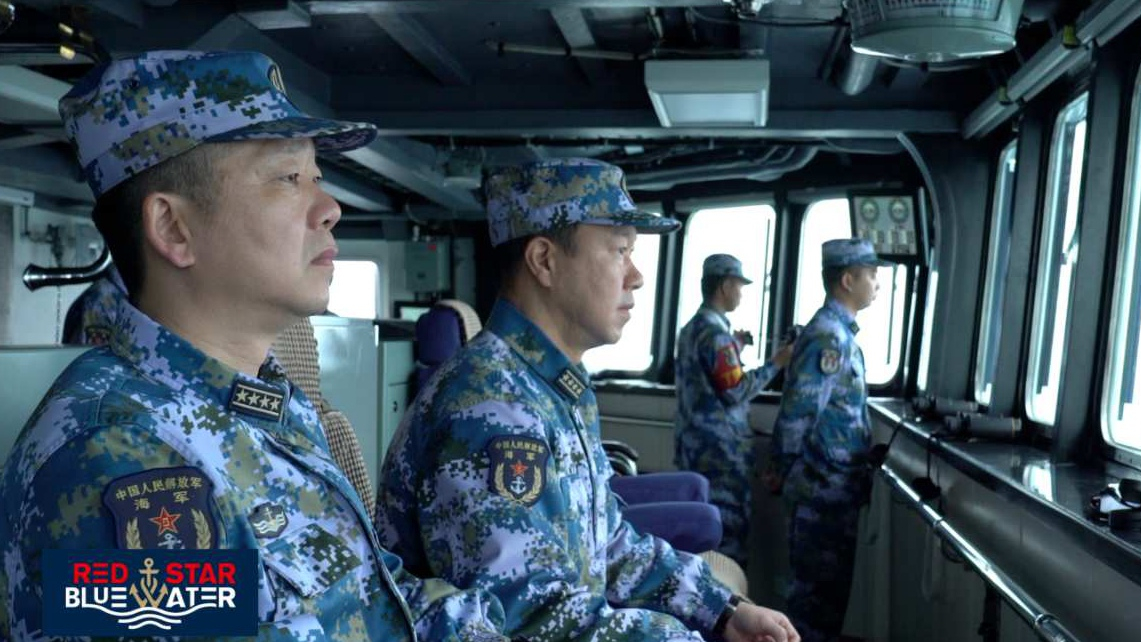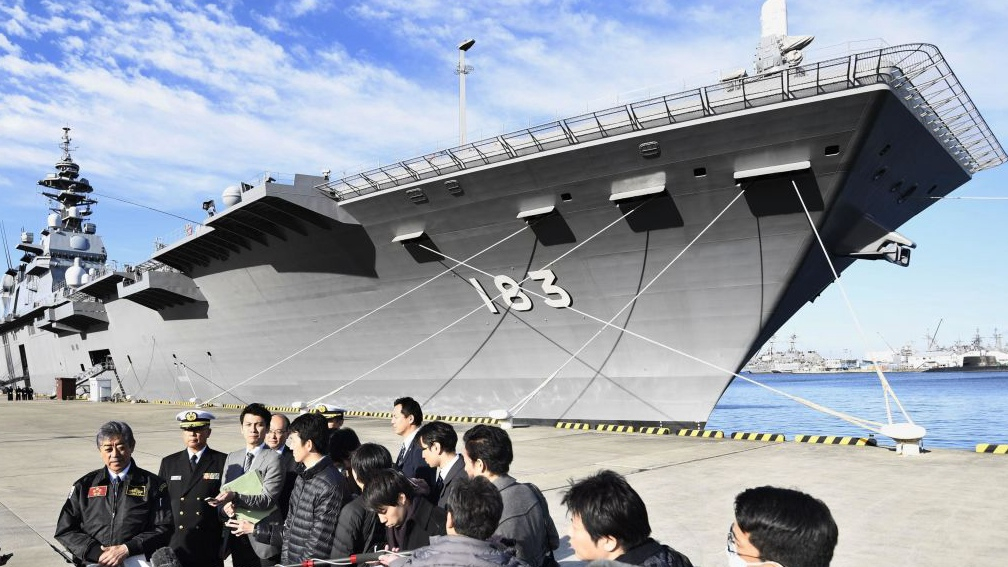
Opinion
13:51, 20-Apr-2019
China-Japan military exchange promotes mutual trust
Hong Yuan

Editor's note: Hong Yuan is an associate director of the Center of World Politics at the Chinese Academy of Social Sciences. The article reflects the author's views, and not necessarily those of CGTN.
April 23, 2019 marks the 70th anniversary of the establishment of the Chinese People's Liberation Army Navy (PLAN). Japan's Maritime Self-Defense Force (MSDF) announced on April 11 that it would send the destroyer "Suzutsuki" to attend the event celebrating the 70th anniversary of the Chinese navy. This is the first time in seven years that MSDF has sent a warship to visit China.
"Suzutsuki" is an Akizuki-class destroyer. The ship is a general and multipurpose destroyer equipped by the MSDF. It is mainly used to undertake air defense, anti-submarine and anti-ship operations of the entire fleet. It is the latest advanced ship in active service in the MSDF. Japan's move can be interpreted in the following ways.
Politically speaking, the Japanese government's taking the initiative to send the advanced "escort ship" or destroyer to participate in the PLAN's Navy Day activities demonstrates its goodwill towards China and indicates that it's taking this opportunity to develop friendly relations between the two countries and their armies. This is a positive gesture worth praising.
From a military point of view, with PLAN's operational areas extending away from coastal regions, it needs to pass several waterways around the Japanese archipelago to enter the Pacific Ocean. Therefore, with Japan following the U.S. strategy of pivoting to Asia-Pacific in recent years, the chances for China's and Japan's marine and air forces to meet in the East China Sea, the Pacific Ocean and even the South China Sea have increased.
It is indeed necessary for the armed forces of the two countries to enhance communication and contact with each other so that the commanders of the two sides can reduce misjudgment. Japanese warships coming to China for the celebration is a good opportunity for more contact.

Japanese Defense Minister Takeshi Iwaya (far L) meets the press at the Maritime Self-Defense Force's base in Yokosuka, south of Tokyo, December 19, 2018. /VCG Photo
Japanese Defense Minister Takeshi Iwaya (far L) meets the press at the Maritime Self-Defense Force's base in Yokosuka, south of Tokyo, December 19, 2018. /VCG Photo
The military exchanges between the two countries can be classified into three different levels: High level, medium level and low level. The friendship and high level of mutual trust between armed forces on both sides represent a high-level bilateral exchange.
Generally speaking, the mutual trust between countries in East Asia is conditional, while suspicion and fears are the given. The biggest obstacle to the mutual military trust between China and Japan is the U.S.-Japan military alliance. The U.S. Northeast Asia strategy affects the entire Sino-Japanese relationship. Its control over Japan's national defense policy and military strategy directly affects the formulation of Japan's national policy.
Therefore, it's unrealistic to ignore the friction and simply talk about Sino-Japanese military friendship or mutual trust. The reason is that Japan as a country is a bit different, not only in terms of its national economy and politics, but also in the sense that its military is under the absolute control of the U.S. Army. Under such a circumstance, it would be hard for the Japanese and Chinese armies to fully trust each other. And for this reason, if the two countries wanted to fundamentally enhance military mutual trust, the U.S.-Japanese military alliance has to go.
At the same time, realistically speaking, due to geographical proximity, it is a likely scenario that their armies will encounter each other at sea and in the air, and it's also necessary for them to cooperate. Therefore, there has to be professional code of conduct and even amendments to relevant rules. This is an urgent issue to be addressed in the current communication. And a new platform of primary mutual trust can be built upon that.
(If you want to contribute and have specific expertise, please contact us at opinions@cgtn.com.)

SITEMAP
Copyright © 2018 CGTN. Beijing ICP prepared NO.16065310-3
Copyright © 2018 CGTN. Beijing ICP prepared NO.16065310-3